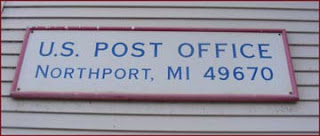My Sunday bread-baking got
shifted from Sunday to Monday this week. Reading and baking bread work well
together, as do reading and writing letters, or reading and doing laundry. All
are good, productive indoor winter activities.
But Sarah and I do get out a few times a day, too, of course!
Our intrepid Ulysses Reading Circle will meet next week to discuss Sarah
Orne Jewett’s The Country of the Pointed Firs, so I re-read and have been thinking about that book lately and also re-reading
Willa Cather’s essay on Jewett’s work. Still making slow progress through The
Tale of Genji. And I’m also still
thinking about M.F.K. Fisher, as glimpsed through the collection of her letters
I read.
In her books about France and
about food, the author is MFKF, professional writer but also, as one learns
from the letters, self-created persona. MFKF is solitary, mysterious, somewhat
fey, definitely haunting. When she hurries around a corner, you think perhaps
she vanishes.
I met MFKF for the first time
in Map of Another Town and was
spellbound. I’d never met anyone like her. Having now met Mary Frances the
letter-writer, I realize the distance between the person and the persona, as
well as how much closer I feel to the letter-writer. Mary Frances loved letters writing and receiving them. She loved getting to know her correspondents better through letters, keeping
in touch with old friends, and exploring what was going on in her own head. For
her, sitting down to write a letter was a self-indulgent escape from
the hard work of “real” writing. In one letter (and I can’t find it again in the
book) she writes that she is a letter-writer the way some people are alcoholics
or “Benzedrine-boys.”
(Many times – and I’ll put my
personal responses in parentheses so as not to seem presumptuous, as if I'm putting myself in the same league with MFKF -- I have the
same feeling. Self-indulgent! I find it then very strange when anyone thanks me for a letter. It was not a selfless sacrifice!
Almost always so much the opposite that I sometimes worry, in fact, about imposing letters on people, since those not addicted to writing letters themselves may feel irksomely called upon reciprocate. I don’t
see it that way. I don’t consider that anyone “owes” me a letter in
return. Just for the record.)
Another time she writes,
I can think and feel and write better when I am invisible. I become clearer to myself... sounds foolish but you’ll understand. Here [at home] I play too many parts, often because I enjoy them or find them challenging. When I am in France I am more truly real to myself....
This passage, I think, was
not meant to contrast the writing of letters to being with people face to face. It
was, note, “in France” that she felt “more truly real” to herself, and as I
interpret that, she felt, when far from home, more simply herself. Living abroad, she was not required to face
anyone as daughter or sister or long-time neighbor, as professor or employee.
The relationships she formed while in Dijon and later in Aix-en-Provence were limited
by circumstances. Her landlady and the waiters who recognized her were not her
close friends; they knew little of her other than what they saw. And out of
that solitude Mary Frances was able to construct the MFKF persona and to work
and to be, unhindered.
(In our last winter’s high
desert isolation, though David and I were together, I felt very free of
multiple roles and social expectations. With David and Sarah I can be
completely myself -- lose myself in writing or reading or wandering aimlessly
outdoors or exploring roads by car with the two of them. And no one else
knew me in the ghost town or the nearby cow town. I could disappoint no one, and
no one could disappoint me. Simply being there, taking in our surroundings,
which felt delightfully foreign, as fully as possible, with all senses,
learning as much as I could about a strange, new part of the world – all that
was “work” I assigned myself. I felt very “clear” and lighter than air.)
Mary Frances the
letter-writer was confident and frank. Asked to read someone’s book, even the
book of a friend, she delivered her opinions bluntly. She was equally
honest in her response if a friend confided in her about a mood or a personal
dilemma. To her, friendship required honesty, and any relationship that honesty
would destroy was no friendship in the first place.
(I cannot be otherwise than
honest in giving my opinion of a piece of writing or an idea. My frankness
equals Fisher’s in those restricted domains and is usually, though not always,
received without resentment. On other topics, I’ll more often listen without
giving an opinion, and I am unlikely to chide a friend for bad moods (even if frequent) or what look from the outside like self-inflicted personal difficulties. That is to say, I am a
reader and writer and editor and philosopher to the marrow of my bones but do
not take it upon myself to act as a psychiatrist. I am not criticizing Fisher
for telling her friends how she honestly saw them. She was able to carry it off
and perhaps to help. I have not that gift. Everything having to do with
another’s heart seems complicated to me, and I am more likely to second-guess,
over and over, my interpretations of others’ complex motivations and
ever-present inner struggles. Also, I certainly do not welcome a friend’s
“psychologizing” me! But this is a deep and mysterious realm....)
Fisher’s side (we do not have in the book letters written to her) of her correspondence with family and friends begins, in A Life in Letters: Correspondence 1929-1991, when she was living in Dijon with her first
husband. The last in the volume is two sentences long and was written to the
same friend who received one of the earliest in the collection. It is so short
and such a perfect close for the volume that I will quote it in full:
Transcendental is the word. I don’t believe in all this stuff about grief because I think we grieve forever, but that goes for love too, fortunately for us all.
Some women I know were
talking the other morning about how “no one” writes letters “any more,” and the
thought made me sad. I think of the closeness developed with several friends through the writing of long letters to each other (after more superficial
acquaintance) when they went to live in far-off places and we could not meet in
person for months or years. When they returned, we had become true friends, and
those friendships continue to this day.
The very slowness of
handwriting a letter, along with the tactile component, brings intimacy to the
process. The necessary wait for a letter to arrive allows anticipation to build. Finally, there is the delight of taking the envelope in hand at last,
with that dear, familiar handwriting. A letter from my friend!
While I truly delight in
e-mails from a handful of friends (and I’m sure people receive at least some
phone texts with delight, though I do not text so do not know from firsthand
experience), how can instant electronic match the miraculous sensation of opening a letter
and beginning to read it, picturing one’s friend writing the words several days
before, and now, days later, feeling
that friend’s mind in communion with one’s own? My own letter-writing, as I
say, feels self-indulgent, and yet I am grateful for personal letters others write me. Reading a letter, I am
thankful that my friend set aside time to share her or his life and thoughts
with me.
Friendship, after all, like
marriage, takes time. There are no shortcuts to long relationships.
On the heels of the sad
conversation about “no one” writing letters “any more,” I went straight to the
post office to buy stamps. That was Saturday. Now today, Tuesday the 26th
of January, Leelanau Township bows under a heavy, wet snow. School is closed.
Roads are bad. It’s a good day to write letters. And maybe somewhere, far from
my isolated farmhouse, a friend is writing a letter to me....

























